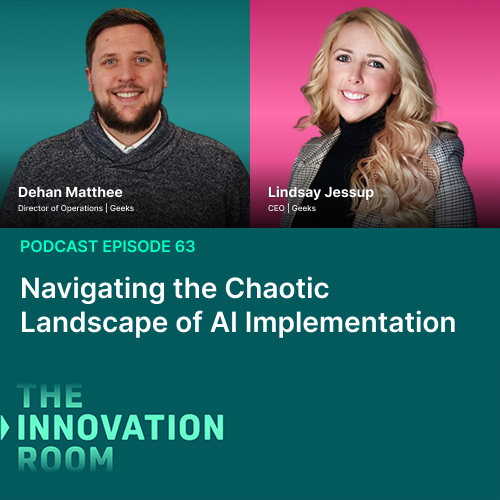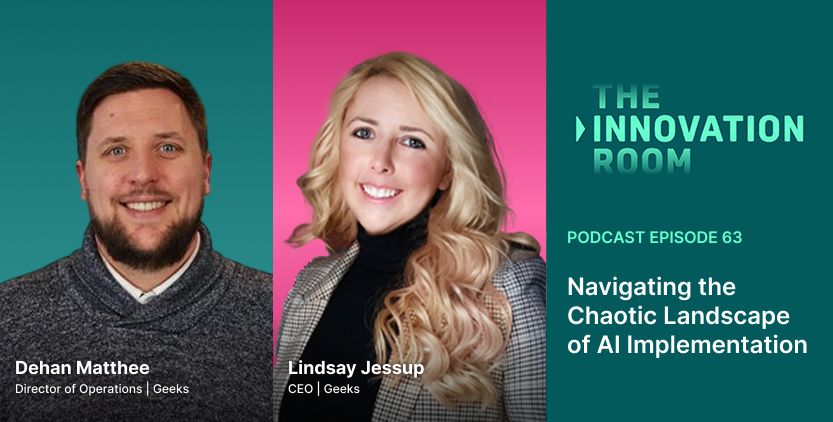
Reskilling your workforce for the AI age: A practical guide for business leaders
The rapid evolution of AI is reshaping workplace tasks and roles across industries. As intelligent systems become more capable, businesses must rethink how to develop essential skills for every role, from technical experts to creative strategists and operational leaders. This transformation affects all areas, with some skills becoming obsolete and others emerging as mission-critical.
This guide explores how organisations can prepare for this shift by focusing on the rapid and inclusive reskilling needed to thrive in an AI-driven environment.
The rise of agentic AI
The shift toward more autonomous, "agentic" AI systems, capable of independent decision-making, demands a faster approach to workforce development than ever before. Tasks once requiring human oversight are increasingly being delegated to AI, while roles requiring analytical, strategic, or creative problem-solving are becoming even more critical.
Leaders face a pressing challenge: how to quickly and comprehensively reskill the entire organisation to navigate this changing landscape. Unlike previous technological revolutions, the AI era impacts every role, not just highly technical positions.
Those who can respond rapidly with effective learning strategies will outpace competitors by harnessing AI’s potential rather than being disrupted by it.
Identifying AI-affected roles
To prepare your workforce for the AI age, it's essential to identify which roles and skills are most likely to be impacted by AI. By understanding the potential impact of AI on your organisation, you can proactively develop reskilling strategies to mitigate any negative consequences.
While traditional approaches to workforce transformation focused on automatable, routine tasks, AI's influence is now more expansive:
-
Data analysis and decision support: AI can process vast amounts of data, but humans are essential for interpreting results and contextualising insights.
-
Customer interaction roles: Routine customer service tasks may be handled by bots, but complex issues still require humans trained in relationship management and empathy.
-
Creative problem-solving: Strategy, innovation, and design thinking remain crucial as AI lacks true creative intuition.
-
Compliance and ethical oversight: With stricter data privacy regulations, employees need new skills in data governance and ethical AI use.
Rather than focusing solely on specific job titles, companies must assess tasks within roles to determine which skills are most vulnerable or complementary to AI advancements.
A practical approach to reskilling
Once you've identified the roles at risk and the necessary reskilling strategies, it's crucial to implement these initiatives effectively. This involves creating a supportive learning environment and providing employees with the resources they need to succeed.
Consider establishing dedicated learning platforms, offering mentorship programmes, and providing access to online courses and workshops. It's also important to foster a culture of continuous learning, where employees are encouraged to embrace new technologies and develop their skills throughout their careers.
By creating a culture of learning and development, you can ensure that your workforce remains adaptable and resilient to technological change.
Here are some practical approaches you can follow:
-
Map AI impact across roles: Break down job responsibilities to identify where AI can replace, augment, or enhance human work.
-
Design targeted learning pathways: Build custom learning journeys that combine technical upskilling (e.g., data literacy) with "human-centric" skills like critical thinking and emotional intelligence.
-
Foster continuous learning: Establish platforms and communities where employees can continually refresh and expand their skills, enabling a culture of adaptability.
-
Promote cross-functional skill development: Encourage employees to explore areas beyond their current expertise, fostering a more versatile workforce.
Preparing for the future: A human + AI collaborative model
As AI systems become more agentic, organisations will increasingly need human talent to focus on creative, strategic, and ethical decision-making. The demand for adaptability, innovation, and strong interpersonal skills will intensify.
This shift emphasises the importance of developing human-centric skills that cannot be easily replicated by algorithms.
Forward-thinking leaders must prioritise skill development across these areas:
-
Creative problem-solving: Encourage innovation through brainstorming sessions and experimentation with new ideas.
-
Emotional intelligence: Develop empathy and active listening skills to foster stronger team collaboration and customer relationships.
-
Ethics and compliance: Train employees to navigate evolving legal frameworks surrounding AI.
-
Data literacy: Equip teams to interpret data, identify patterns, and make informed decisions in collaboration with AI systems.
Ultimately, the winners in this environment will be those companies that view reskilling as a continuous process rather than a one-off project. Frequent assessments of team capabilities, combined with agile approaches to development, will become the baseline for sustained growth.
Staying competitive
The future belongs to organisations that treat reskilling as a perpetual process, not a one-off initiative. By fostering a culture where learning never stops, businesses can empower employees to adapt to AI-driven changes confidently and proactively.
By embracing AI as a collaborative tool rather than a threat, leaders can unlock new avenues of growth and innovation. The faster businesses invest in comprehensive, inclusive reskilling, the better prepared they will be to navigate the complexities of an AI-influenced future.
The key takeaway? Reskilling isn’t just a survival strategy, it's a growth imperative in the AI era.










